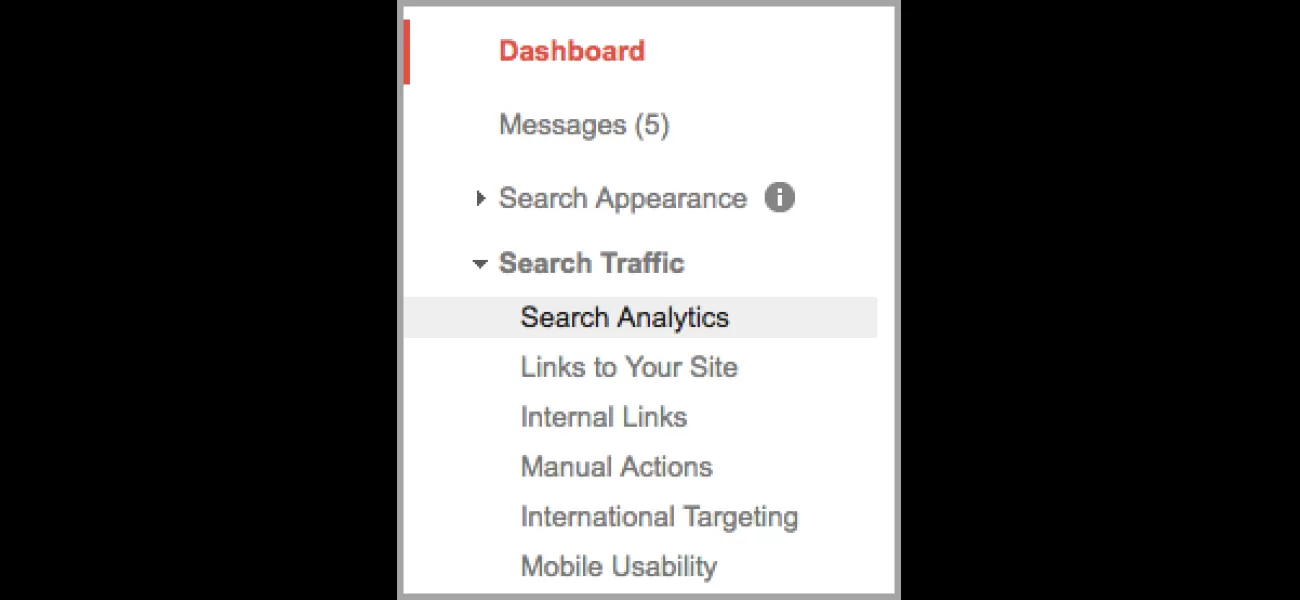13 metrics to study in 2023 to maximize SEO success.
To measure the effectiveness of SEO, look at traffic and metrics beyond keyword ranking. Track ROI with a wide variety of metrics.
June 14th 2023.

Studying the SEO metrics created by the traffic your website receives can provide you with insight into the effectiveness of your SEO practices. In this article, we’ve gone over the 13 most important metrics you should consider when putting together reports that will evaluate your SEO efforts.
We began by discussing the importance of understanding the number of clicks received from month to month, and how the Search Console provides a report that can help you do this. This report will also allow you to pinpoint which landing pages are attracting the most clicks and what page elements are driving those clicks.
We then discussed the importance of understanding that your goals are successfully completed. It’s possible to construct a report that allows you to determine your goal values, the goal conversion rates and the number of goal completions. By filtering the results to report solely on organic traffic, you have the ability to calculate your return on investment derived from your unpaid SEO efforts.
Next, we discussed the importance of monitoring bounce rate. Depending on what you’ve designed your website for, a high bounce rate can be either a positive or negative metric. A high bounce rate could indicate that the information on your site isn’t what your users are looking for which causes them to leave.
We then discussed exit pages and how understanding from which pages visitors are leaving your website can give you further insight into the information provided by those pages.
We then turned to keyword ranking and how, although it’s no longer the only metric you need to track to understand the viability of your SEO efforts, it still plays a very important role in getting traffic to your website.
We then discussed the importance of mobile usability and how Google has announced repeatedly that websites that are slow or do not work well for smartphone or tablet users will be ranked lower on the SERPs.
We then discussed lifetime value and how it allows you to assess the value of a unique user compared to your business goals.
Next, we discussed crawl errors and how, if Google isn’t able to successfully crawl your website, your chances of appearing on the SERPs are slim to none.
We then discussed Accelerated Mobile Pages and how Google’s rollout of AMP has made it much easier for website developers to increase the speed and improve the user experience of mobile users.
Finally, we discussed inbound link quality and how it’s a key metric for SEO and should be monitored constantly to ensure the quality of your links.
By studying these SEO metrics and understanding how they work, you’ll be able to better understand how your SEO efforts are actually working and measure the return on investment earned by your SEO practices.
With the ever-changing search algorithms, it’s now more important than ever to understand the quality of the inbound links to your website.
If you’ve been involved in link exchanges with other sites, or have inbound links from questionable sources, it’s time to take a closer look at where your links are coming from.
Google’s Link Disavow tool can be used to disavow any links from questionable sources that you find.
To access the Links to Your Site report, click “Search Traffic” and “Links to Your Site.”
Understanding how your search engine optimization efforts are actually working requires studying the SEO metrics created by the traffic you receive. No longer is simply looking at keyword ranking enough to assess the effectiveness of your work. To properly measure the return on investment earned by your SEO practices, there are now a wide variety of reports that you need to study.
In this article, we'll go over the 13 most important metrics you should consider when putting together reports that will evaluate your SEO efforts.
The first of these SEO metrics is the number of clicks. You can access a report from the Search Console that will tell you the number of organic clicks your site has received as well as which search queries generated those clicks. You can compare the number of clicks from month to month, allowing you to identify which search queries are responsible for the most clicks. Additionally, you can pinpoint which landing pages are attracting the most clicks and what page elements are driving those clicks.
Another important metric to consider is Goal Completion. This report allows you to determine your goal values, the goal conversion rates, and the number of completions. By filtering the results to report solely on organic traffic, you can calculate your return on investment from your unpaid SEO efforts.
Bounce Rate is also a must-measure when it comes to SEO metrics. If someone visits a single page on your website and then leaves, Google Analytics reports a 100% bounce rate or one bounce. Depending on what you've designed your website for, a high bounce rate can either be positive or negative. Understanding from which pages visitors are leaving your website can give you further insight into the information provided by those pages.
Naturally, you'll also want to keep an eye on Keyword Ranking, as it still plays an important role in getting traffic to your website. The “Queries” report in the Search Console will show you which keywords your site is ranking for, the number of impressions they receive, the click-through rate, and their Google rankings.
Mobile Usability is another metric to consider. Google has repeatedly stated that websites that are slow or do not work well for smartphone or tablet users will be ranked lower on the SERPs. Understanding where mobile users are having trouble navigating your site can allow you to reorganize and adjust appropriately.
Lifetime Value is a relatively new report that predicts the potential revenue of a user arriving on your site due to various acquisition efforts. The metrics per user you can choose from include; App Views, Goal Completions, Pageviews, Revenue, Session Duration, Sessions, Tenure, and Transactions.
Crawl Errors and Accelerated Mobile Pages should also be monitored. If Google isn't able to successfully crawl your website, your chances of appearing on the SERPs are slim to none. Additionally, AMP pages have been around for a couple of years now and should already play a role in your website design to create fast loading web pages for mobile users.
Finally, Inbound Link Quality is more important than ever with the ever-changing search algorithms. If you've been involved in link exchanges with other sites, or have inbound links from questionable sources, it's time to take a closer look at where your links are coming from. Google's Link Disavow tool can be used to disavow any links from questionable sources that you find.
Overall, these 13 SEO metrics are essential when it comes to understanding how your search engine optimization efforts are actually working. By studying and understanding these metrics, you'll be able to get a better idea of how to optimize your website and reach the top of the SERPs.
We began by discussing the importance of understanding the number of clicks received from month to month, and how the Search Console provides a report that can help you do this. This report will also allow you to pinpoint which landing pages are attracting the most clicks and what page elements are driving those clicks.
We then discussed the importance of understanding that your goals are successfully completed. It’s possible to construct a report that allows you to determine your goal values, the goal conversion rates and the number of goal completions. By filtering the results to report solely on organic traffic, you have the ability to calculate your return on investment derived from your unpaid SEO efforts.
Next, we discussed the importance of monitoring bounce rate. Depending on what you’ve designed your website for, a high bounce rate can be either a positive or negative metric. A high bounce rate could indicate that the information on your site isn’t what your users are looking for which causes them to leave.
We then discussed exit pages and how understanding from which pages visitors are leaving your website can give you further insight into the information provided by those pages.
We then turned to keyword ranking and how, although it’s no longer the only metric you need to track to understand the viability of your SEO efforts, it still plays a very important role in getting traffic to your website.
We then discussed the importance of mobile usability and how Google has announced repeatedly that websites that are slow or do not work well for smartphone or tablet users will be ranked lower on the SERPs.
We then discussed lifetime value and how it allows you to assess the value of a unique user compared to your business goals.
Next, we discussed crawl errors and how, if Google isn’t able to successfully crawl your website, your chances of appearing on the SERPs are slim to none.
We then discussed Accelerated Mobile Pages and how Google’s rollout of AMP has made it much easier for website developers to increase the speed and improve the user experience of mobile users.
Finally, we discussed inbound link quality and how it’s a key metric for SEO and should be monitored constantly to ensure the quality of your links.
By studying these SEO metrics and understanding how they work, you’ll be able to better understand how your SEO efforts are actually working and measure the return on investment earned by your SEO practices.
With the ever-changing search algorithms, it’s now more important than ever to understand the quality of the inbound links to your website.
If you’ve been involved in link exchanges with other sites, or have inbound links from questionable sources, it’s time to take a closer look at where your links are coming from.
Google’s Link Disavow tool can be used to disavow any links from questionable sources that you find.
To access the Links to Your Site report, click “Search Traffic” and “Links to Your Site.”
Understanding how your search engine optimization efforts are actually working requires studying the SEO metrics created by the traffic you receive. No longer is simply looking at keyword ranking enough to assess the effectiveness of your work. To properly measure the return on investment earned by your SEO practices, there are now a wide variety of reports that you need to study.
In this article, we'll go over the 13 most important metrics you should consider when putting together reports that will evaluate your SEO efforts.
The first of these SEO metrics is the number of clicks. You can access a report from the Search Console that will tell you the number of organic clicks your site has received as well as which search queries generated those clicks. You can compare the number of clicks from month to month, allowing you to identify which search queries are responsible for the most clicks. Additionally, you can pinpoint which landing pages are attracting the most clicks and what page elements are driving those clicks.
Another important metric to consider is Goal Completion. This report allows you to determine your goal values, the goal conversion rates, and the number of completions. By filtering the results to report solely on organic traffic, you can calculate your return on investment from your unpaid SEO efforts.
Bounce Rate is also a must-measure when it comes to SEO metrics. If someone visits a single page on your website and then leaves, Google Analytics reports a 100% bounce rate or one bounce. Depending on what you've designed your website for, a high bounce rate can either be positive or negative. Understanding from which pages visitors are leaving your website can give you further insight into the information provided by those pages.
Naturally, you'll also want to keep an eye on Keyword Ranking, as it still plays an important role in getting traffic to your website. The “Queries” report in the Search Console will show you which keywords your site is ranking for, the number of impressions they receive, the click-through rate, and their Google rankings.
Mobile Usability is another metric to consider. Google has repeatedly stated that websites that are slow or do not work well for smartphone or tablet users will be ranked lower on the SERPs. Understanding where mobile users are having trouble navigating your site can allow you to reorganize and adjust appropriately.
Lifetime Value is a relatively new report that predicts the potential revenue of a user arriving on your site due to various acquisition efforts. The metrics per user you can choose from include; App Views, Goal Completions, Pageviews, Revenue, Session Duration, Sessions, Tenure, and Transactions.
Crawl Errors and Accelerated Mobile Pages should also be monitored. If Google isn't able to successfully crawl your website, your chances of appearing on the SERPs are slim to none. Additionally, AMP pages have been around for a couple of years now and should already play a role in your website design to create fast loading web pages for mobile users.
Finally, Inbound Link Quality is more important than ever with the ever-changing search algorithms. If you've been involved in link exchanges with other sites, or have inbound links from questionable sources, it's time to take a closer look at where your links are coming from. Google's Link Disavow tool can be used to disavow any links from questionable sources that you find.
Overall, these 13 SEO metrics are essential when it comes to understanding how your search engine optimization efforts are actually working. By studying and understanding these metrics, you'll be able to get a better idea of how to optimize your website and reach the top of the SERPs.
[This article has been trending online recently and has been generated with AI. Your feed is customized.]
[Generative AI is experimental.]
0
0
Submit Comment





